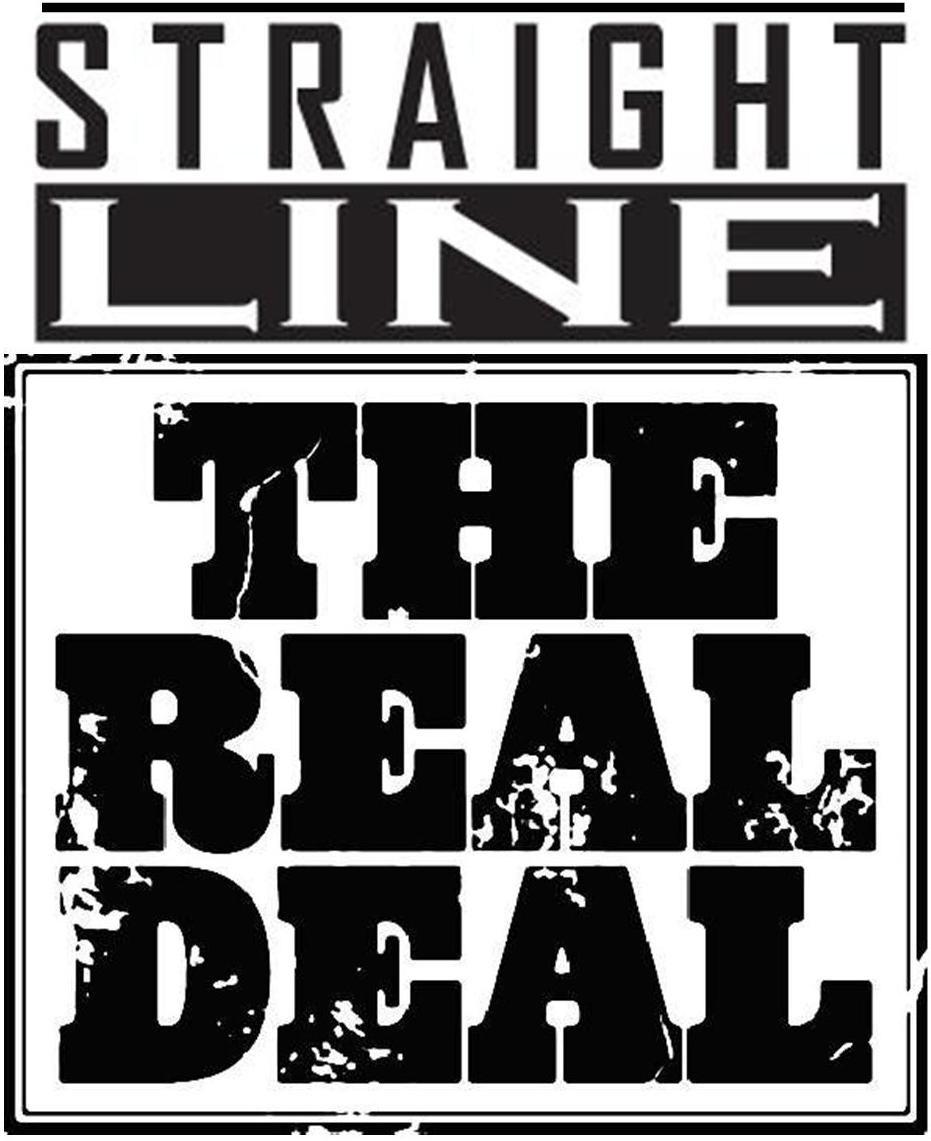New Cook County Circuit Court Clerk Mariyana Spyropoulos released a progress report Monday claiming her team is already digging out from a backlog of reports, unfiled civil court documents and “serious financial management issues.”
Spyropoulos campaigned on running a tighter ship than her predecessors, promising better transparency around court operations and stricter ethics enforcement. She used the milestone of her first 100 business days in office to make the case she is fixing things.
The office, which manages paperwork and operations for all of the county’s courts, has long suffered from a reputation for inefficiency and mixing politics with government work, and it’s fairly typical for a new officeholder to point to the shortcomings of those who held it before while seeking to make good on




pledges.
In her first few months, Spyropoulos told reporters her office organized “over 200 boxes of unfiled civil court documents” and found fines and fees that were owed by defendants but weren’t sent to collections. She hired an accounting firm to do an internal audit to make “sure that our financial situation is sound” and already “let go a certain amount of people” who “did not have the experience necessary to handle financial transactions.”
Required reporting to state agencies also lapsed, she said. The office caught up on traffic cases that should have been sent to the secretary of state for driver’s license suspensions or revocations as well as expungements that should have been forwarded to law enforcement so crimes could be wiped from records, Spyropoulos said.
The office also launched its first data dashboard with case ini-
tiation data dating back to 2020 and appointed a public access director to manage records access requests, strengthen its reporting to other agencies and identify “opportunities to proactively release data.”
Unlike other government offices, the courts including the clerk’s offices are not required to release records about its operations under the state’s Freedom of Information Act. Spyropoulos, however, promised to push for a state law change to bring the office under FOIA and in the meantime, comply with journalists’ requests for information on disciplinary records for employees, probationary programs, and how it collects fines and fees.
Spyropoulos said the office is “very committed to freedom of information” and that she had “preliminary conversations with legislators but you know, we’ve been here about four months, so give me some time so we can get there.”
Spyropoulos said “there were some concerns re-
garding identity theft and taking information off of that,” but said she was “not aware of” any specific cases of such theft. Spyropoulos criticized predecessor Iris Martinez for falling short on oversight, pointing out the office appointing its own internal inspector general made it unlikely that person would investigate potential wrongdoing by their boss. Instead, Spyropoulos promised to bring the clerk’s office under the oversight of the independent inspector general that already investigates other county agencies.
That transition hasn’t happened yet. Spyropoulos appointed Katarina Durcova as her internal IG, who will help implement ethics policies and conduct investigations, and appointed Marissa Longoria her ethics officer in the clerk department.
“We developing our inspector general to see what we going to cover and what we’re not and how many cases they have to see where we’re at. Then we’re going to start meeting with the county inspector general to see
what their approach would be. We’re still developing it,” Spyropoulos said.
Spyropoulos has publicized “anonymous reporting tools” available to employees and the public to flag problems. Employees have logged some complaints about co-workers, she said, but so far are mostly using it to ask HR-related questions. https:// www.chicagotribune.com /2025/04/28/cook-countycircuit-court-clerktransparency-promises

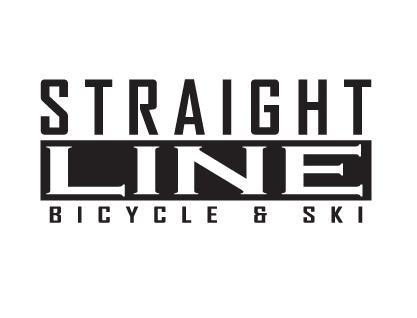



CRA's Responsibilities for Reporting Criminal Records
Whatmoreshoulda CreditReportingAgency (CRA)doforcriminal recordchecksotherthan usingatrustedsourceand reportingtheirfindings?
That's a critical area where CRAs handling criminal record checks need to go beyond simply accessing and reporting information from trusted sources. Given the significant impact criminal records can have on individuals' lives (employment, housing, etc.), CRAs have a responsibility to ensure accuracy, fairness, and compliance.
Here's what more they should be doing:
Ensuring Accuracy and Context Beyond the Initial Record:
Verification and Validation: While using trusted sources is key, CRAs should implement additional layers of verification to ensure the record pertains to the specific individual. This could involve crossreferencing with multiple identifiers (beyond name and date of birth), and in some cases, even manual review for common names.
Considering the Disposition of the Case: It's crucial to report the full disposition of a case, not just an arrest record. This includes whether charges were dropped, the individual was acquitted, or the outcome of any conviction. Reporting only an arrest can be misleading and unfairly stigmatizing.
Accounting for Expungements and Sealed Records: CRAs must have robust processes in place to identify and properly handle expunged or sealed records, ensuring they are not reported in violation of legal requirements. This requires staying up-to-date with varying state laws and imple-
menting effective data management practices.
Providing Contextual Information (Where Legally Permissible and Ethical): While they shouldn't editorialize, providing legally permissible context, such as the level of the offense (misdemeanor vs. felony) and the date of the offense, can help the user of the report better understand the information.
Regular Audits of Data
Sources: CRAs should regularly audit their data sources to ensure their accuracy, reliability, and adherence to legal standards.
Promoting Fairness and Compliance:
Adhering to the Fair Credit Reporting Act (FCRA) and State Laws: Strict adherence to the FCRA and relevant state laws regarding the use and reporting of criminal records is paramount. This includes providing proper disclosures to consumers and following specific procedures for adverse action based on criminal record information.
Establishing Clear Guidelines for Users of Criminal Record Information: CRAs should provide clear guidelines to their clients (e.g., employers, landlords) on the legal and ethical considerations when using criminal record information for decision-making. This could include information on Ban the Box laws and individualized assessment requirements.
Offering Resources and Information to Consumers: CRAs should provide clear and accessible information to consumers about their rights regarding criminal background checks, including how to dispute inaccuracies and understand the impact of their records.
Training Staff on Fair and Accurate Reporting: Ensuring that CRA staff involved in processing and reporting criminal record information are thoroughly trained on legal requirements, accuracy standards, and ethical
considerations is essential.
Regular Legal Review: CRAs should regularly consult with legal experts to ensure their practices remain compliant with evolving laws and regulations related to criminal record reporting.
Improving the Consumer Experience:
Transparent Dispute Processes: Consumers should have a clear and easy process for disputing inaccuracies in their criminal record information, with timely and thorough investigations by the CRA.
Clear Communication: CRAs should communicate clearly with consumers about the status and outcome of their disputes.
Easy Access to Reports: Consumers should have easy and affordable access to their own criminal background reports to review for accuracy.
Considering Ethical Implications:
Advocating for Fair Chance Practices: While their primary role is reporting, CRAs could potentially advocate for or educate on fair chance practices and the responsible use of criminal background checks
Staying Informed on the Societal Impact: CRAs should be aware of the broader societal impact of criminal record reporting and strive to balance the needs of their clients with the rights and rehabilitation of individuals with past convictions.
In conclusion, simply reporting information from a trusted source is insufficient for CRAs handling criminal records. They must actively work to ensure the accuracy and completeness of the information, adhere strictly to legal requirements, promote fairness in its use, and provide robust support and transparency for consumers. This requires a more proactive and responsible approach than with traditional credit data due to the
sensitive nature and potential impact of criminal history information.
Steven Brownstein meets with the staff at Honolulu Information

The Background Investigator Goes to Hawaii
Wow. The Background Investigator meets the original Hawaii court record researchers - Honolulu Information - on their home turf, Hawaii!
We visited their office, which is just around the corner from the courts and most other public record sites. The atmosphere in their office was truly 'background check."
No fooling around here.. they're an original, since at least 1991.
Honolulu Information
NODELAYS

The Background Investigator Steven Brownstein
WHY ADVERTISE IN THE BackGround Investigator?
The BackGround Investigator brings to the Pre-Employment Screening Industry the tools needed to succeed in this dynamic industry.
The BackGround Investigator is mailed monthly to over 4000 certified Screening PROFESSIONALS your customers!
1-866-909-6679
PUBLISHER
Steven Brownstein
The BackGround Investigator is read from cover to cover. It is used again and again for further research. There is no better value than to advertise in The BackGround Investigtor ADVERTISE IN THE BackGround Investigator 1-866-909-6678 x3
CONTRIBUTORS: Tom Gell, Steven Brownstein, Les Rosen
COVER PHOTOGRAPH: N/A
COVER PHOTOGRAPHER: Steven Brownstein
PURPOSE: “Dedicated to pre-employment screenings everywhere”
The Background Investigator is published by Steven Brownstein, LLC, PMB 1007, Box 10001, Saipan, MP 96950. Phone: 670-287-1186. Copyright 2025 by Steven Brownstein, LLC. Some material in this publication must not be reproduced by any method without the written permission of the copyright holder.
SUBSCRIPTIONS: Toll free USA 1-866-909-6678 or contact: phyllisn@search4crime.com
Criminal Record Checks Are The Most Important Feature of a Background Check
From the standpoint of liability and cost to the company, the feature of a pre-employment background check that has been proven to be the most likely to be performed incorrectly and lead to negative consequences is the criminal record search.
Here's why:
High Stakes of Errors:
Mistakes in criminal record checks, whether they are false positives (incorrectly reporting a criminal history) or false negatives (missing a relevant criminal history), carry significant risks:
Negligent Hiring Liability:
If an employer fails to adequately vet an employee's criminal history and that employee subsequently commits a crime that harms someone in the workplace or related to their job, the employer can be held liable for negligent hiring. These lawsuits can result in substantial settlements and legal fees, often in the hundreds of thousands to millions of dollars.
Discrimination Lawsuits: Incorrectly flagging a criminal record or applying overly broad exclusions based on criminal history can lead to discrimination lawsuits, particularly if the policies have a disparate impact on protected classes. The EEOC provides specific guidance on the use of criminal history in employment decisions to avoid discrimination.
Reputational Damage:
Hiring an employee with a history of serious offenses that becomes public knowledge can severely damage the company's reputation and erode trust with customers and stakeholders.
Workplace Safety Incidents: Failing to identify a potentially dangerous individual through an inadequate criminal record check can lead to incidents of vio-
lence, theft, or harassment in the workplace, resulting in direct costs related to the incident, decreased productivity, and potential legal action.
Complexity and Data Issues:
Criminal record searches involve navigating complex legal jurisdictions, varying record-keeping systems, and potential for errors in databases. Common issues include:
Mistaken Identity: Similar names or birthdates can lead to the criminal records of one person being incorrectly associated with another.
Inaccurate or Outdated Information: Records may not be updated to reflect expungements, dismissals, or changes in status.
Incomplete Searches: Failing to search relevant jurisdictions (federal, state, county) can result in missing critical information. Misinterpretation of Records:
Understanding the nuances of legal terminology and the severity of past offenses is crucial for proper evaluation.
Legal Compliance Requirements:
The Fair Credit Reporting Act (FCRA) and various state and local laws impose strict requirements on how criminal background checks are conducted, including disclosure, consent, adverse action procedures, and the permissible use of criminal history information. Errors in these processes can lead to legal violations and penalties. While errors in other background check features like education or employment verification can lead to costs associated with bad hires and potential reputational damage, the direct liability and potential for catastrophic costs (including harm to individuals) are generally highest when criminal record checks are performed incorrectly or inadequately. The consequences of a violent act or significant financial crime committed by an employee whose history was missed or mishandled during the background
check process far outweigh the typical costs associated with an employee who misrepresented their qualifications.
Therefore, while all aspects of a background check should be performed accurately, the criminal record search is arguably the most critical from a liability and potential cost perspective due to the serious risks associated with errors or omissions.
80,000 organizations across more than 200 countries and territories. The report reflects customer insights from a diverse range of verticals, including healthcare, retail and hospitality, transportation, education, government, and more, pinpointing the critical factors that drive efficiency, compliance, and an improved candidate experience.
Key findings from the 2025 Global Trends Report include:
When can I receive a Conditional Discharge?
Conditional discharges are not available for all offenses. Specifically, you cannot receive a conditional discharge if:
The offense carries a mandatory minimum sentence. This means the law requires a judge to impose a certain minimum punishment, leaving no room for a discharge. The offense carries a maximum sentence of more than 14 years in jail. If the potential punishment is very severe, a conditional discharge is not an option. Essentially, conditional discharges are generally reserved for less serious offenses where the law allows for judicial discretion in sentencing.
First Advantage Releases 2025 Global Trends Report
First Advantage Corporation has released its 2025 Global Trends Report. Meticulously crafted from hundreds of customer survey responses, and analysis of hundreds of millions of anonymized data points, the latest edition of the proprietary research offers a global perspective and unparalleled insight into the evolving landscape of background screening.
As one of the largest background screening providers, First Advantage leverages deep industry expertise and data sources to identify key trends, best practices, and emerging challenges that shape screening programs for
The Acceleration of Speed and Automation – In 2024, the demand for faster background screening processes surged, particularly in the United States. Enhanced automation technologies have significantly reduced criminal background check turnaround times, enabling employers to onboard candidates more efficiently while maintaining compliance.
Balancing Speed with Regulatory Compliance –
As organizations strive to streamline hiring, they continue to prioritize adherence to evolving global regulatory requirements. Advanced screening technology plays a crucial role in enabling a seamless process that supports compliance.
Increased Identity Fraud
– Companies worldwide are increasingly leveraging identity fraud mitigation solutions and criminal his-
As an example, in the UK, an average of 52% of applicants use touchless digital identification within their online application, and 9% provide a share code to validate their right-to-work
“This year’s report emphasizes how the right blend of technology and compliance strategies can enable companies to hire smarter, onboard faster, and create a seamless candidate experience while upholding the highest standards of risk mitigation and security,” said Joelle Smith, President of First Advantage. “As speed remains a critical priority for our customers, they are leveraging our software to expedite the hiring process all while maintaining rigorous global regulatory compliance in their screening processes.”
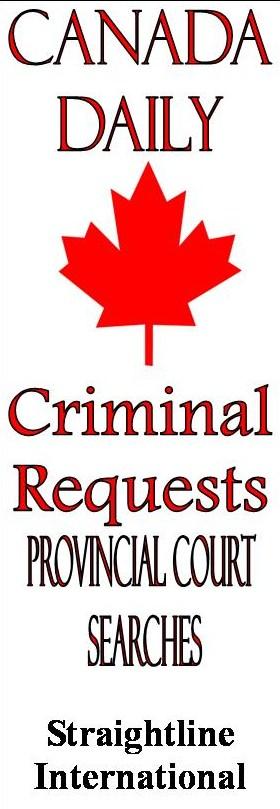
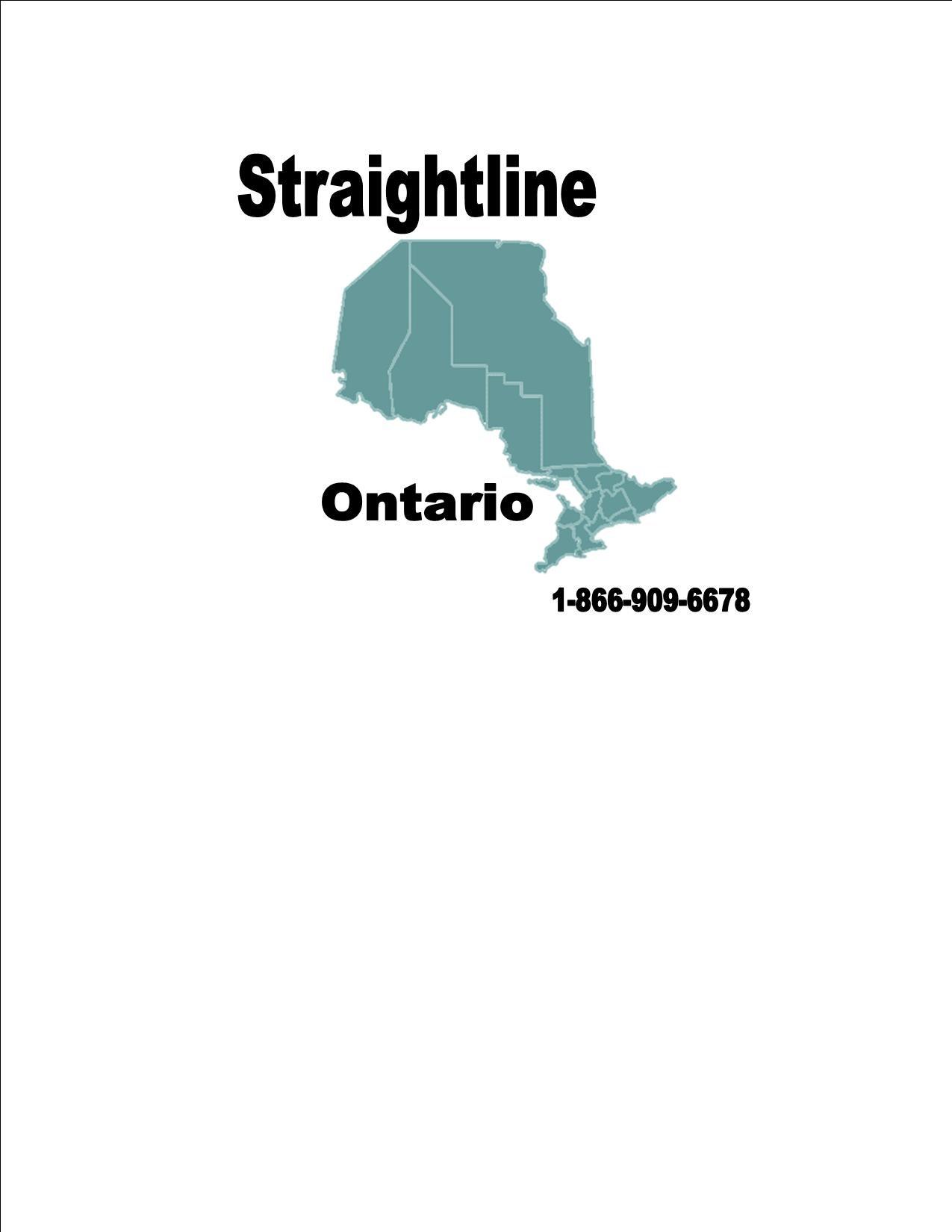
New York City Court
Certificates of Disposition Are Used By Companies for Employment Background Checks
A New York City Court Certificate of Disposition serves a crucial role in employment background checks for several key reasons:
1. Official and Verified Record: A Certificate of Disposi-
legal implications for its use.
Adjournment in Contemplation of Dismissal (ACD): Indicates the case was adjourned and will be dismissed if certain conditions are met. Without this official disposition, an employer might only see an arrest record, which doesn't indicate guilt or the final resolution of the case.
3. Provides Context Beyond Arrest Records:
Background checks often reveal arrest records. However, an arrest alone is not evidence of guilt. A Certificate of Disposition provides the necessary context to understand the outcome of that arrest.
the time elapsed since any conviction.
5. Supports Individual Assessment:
New York law (Correction Law Article 23 -A) requires employers to perform an individualized assessment when considering an applicant's criminal history. This involves looking at factors like the nature of the crime, its relationship to the job, the time since the offense, and evidence of rehabilitation.
The detailed information on a Certificate of Disposition assists employers in conducting this legally mandated assessment.
6. Addresses Sealed Records:
The FTC Warns - Use Adverse Social Media Searches Carefully
The FTC staff looked at a company selling background reports that include information from social media to see if they were complying with FCRA.
The FTC staff’s letter (from 2011) to the company emphasized that when reports include information derived from social media, the same rules apply. For example, companies selling background reports must take reasonable steps to ensure the maximum possible
addition, companies must give employers who use their reports information about employers’ responsibilities under FCRA like their obligation to provide employees or applicants with advance notice of any adverse action taken on the basis of the reports.
Another key requirement: Companies selling background reports for employment must require that employers certify the report won’t be used in a way that would violate federal or state equal employment opportunity laws or regulations.
Of course, given the sensitive nature of the infor-


Recent Lawsuits in the News:
Data Breach Exposing Sensitive Information:
National Public Data (NPD) Lawsuit (October 2024): A class-action lawsuit was proposed against National Public Data, a background checking service, following a significant data breach. The lawsuit alleges that billions of sensitive personal records were exposed and potentially sold on the dark web due to the company's negligence and failure to protect customer data.
Class Action Settlements for FCRA Violations:
Employment Background Investigations (EBI) Settlement (December 2024): Another class-action settlement involved Employment Background Investigations, which agreed to pay $611,600 to settle claims of FCRA violations for providing criminal history information to employers without proper notification to the individuals.
Settlement Over Insufficient State Background Check System:
Ohio BCI Settlement (September 2024): While not directly against a private background check company, the cities of Columbus and Dayton settled a lawsuit with Ohio's Bureau of Criminal Investigation (BCI) over the accuracy and completeness of the state's background check system, which is relied upon by employers. This highlights the broader issue of background check accuracy.
A Status Report on Afghanistan Since the Taliban Takeover
Contrary to many popular assumptions, the courts in Taliban-ruled Afghanistan are currently operational, albeit with irregular procedures and without the use of clear legal authorities. Under these difficult conditions, Afghan lawyers are nevertheless finding ways to advocate on behalf of their clients.

The Link to article: www.thebackgroundinvestigator. com/Articles/A-Status
Key Themes Found in Recent Background Check Lawsuits:
Accuracy of Information:
A recurring issue is the reporting of inaccurate criminal records, including expunged or dismissed cases, or records belonging to other individuals with similar names.
FCRA Compliance: Many lawsuits allege violations of the FCRA, particularly concerning proper disclosure to the subject of the background check, obtaining consent, providing copies of reports, and following adverse action procedures.
Data Security: With the increasing amount of sensitive personal information handled by background check companies, data breaches are becoming a significant source of litigation.
What Effect Did the CFPB Have On Credit Reporting Agencies Relating to Background Checks
The Consumer Financial Protection Bureau (CFPB) has had a significant impact on Credit Reporting Agencies (CRAs), including those involved in background checks, through increased regulation, oversight, and enforcement.
Here are the key effects:
Increased Compliance Requirements:
CRAs are required to ensure the accuracy and integrity of consumer information under the Fair Credit Reporting Act (FCRA), which the CFPB enforces. This includes stringent requirements for data accuracy, timely dispute resolution, and proper disclosure of consumer rights.

Enhanced Dispute Processes:
The CFPB has enforced stricter guidelines on how CRAs handle consumer disputes, requiring more robust verification and correction processes.
CRAs must correct or delete inaccurate, incomplete, or unverifiable information within 30 days of a dispute.
Fines and Settlements:
The CFPB has issued numerous fines against CRAs for failing to meet FCRA requirements, including significant penalties against the major CRAs (Experian, Equifax, and TransUnion) for misleading consumers and failing to properly respond to disputes.
Regulation of Public Records Use:
Background check companies must be cautious when using public records, such as criminal records, in reports to ensure accuracy and avoid discrimination. The CFPB has issued guidance to reduce the risk of reporting errors.
Oversight of Specialty CRAs:
The CFPB also monitors specialty CRAs, like those focusing on tenant screening, employment background checks, and medical data, ensuring they comply with FCRA regulations.
Consumer Education and Transparency:
CRAs must provide consumers with clearer information about their rights, including the ability to obtain free annual credit reports and dispute inaccuracies.
Increased Litigation Risk:
As a result of CFPB actions, CRAs face a higher risk of litigation from both consumers and regulatory bodies for FCRA violations, encouraging more careful data handling.
Operational Changes:
Many CRAs have had to overhaul their data collection, processing, and quality control systems to comply with CFPB standards, which has increased operational costs but also improved data quality.
Are CFPB Regulations Still In Effect?
Yes, as of May 2025, the Consumer Financial Protection Bureau (CFPB)'s regulations remain legally in effect. However, the agency's enforcement and oversight activities have been significantly curtailed under the current administration.
Consumer Financial Services Law Monitor
CFPB Regulations Still Legally Binding
Despite recent changes in leadership and policy direction, the CFPB's existing rules such as those under the Fair Credit Reporting Act (FCRA) and Truth in Lending Act (TILA) continue to be enforceable. Financial institutions and credit reporting agencies are still required to comply with these regulations. Non -compliance can lead to legal consequences, including lawsuits from consumers and enforcement actions by other regulatory bodies.
Link: Consumer Financial Services Law Monitor https:// www.consumerfinancialser viceslawmonitor.com/2025/ 05/cfpb-rescinds-dozens-of -regulatory-guidancedocuments-in-majorregulatory-shift/
WVPASS Online Circuit Court Records System Launched In W.Va.
A new online court records system is live in West Virginia.
In January the Supreme Court of Appeals of West Virginia launched a new online system for the public to search and access circuit court records in all 55 counties.
The West Virginia Public Access Search System, or WVPASS, provides online access to all publicly available circuit court documents dating back to 1999. Registration to use the new system is free to the user and documents can be downloaded for a small charge.
You can access it (and the existing Magistrate Court search system) by: at the “Court Records” menu; https://www.courtswv
Choosing the Right Jurisdiction for Your International Court Record Research
DO NOT RELY ON MAPS ALONE
When determining the correct judicial authority for a particular location, it's essential that we rely on detailed and authoritative research sources rather than maps alone.
While maps can provide a general understanding of geographic areas, they often lack the specific jurisdictional boundaries and legal nuances required for accuracy in our work.
To ensure precision, we should focus on resources like official government records, legal directories, or judicial district databases.
These sources are designed to provide the exact information we need and help us avoid any potential errors caused by relying solely on geographic references.
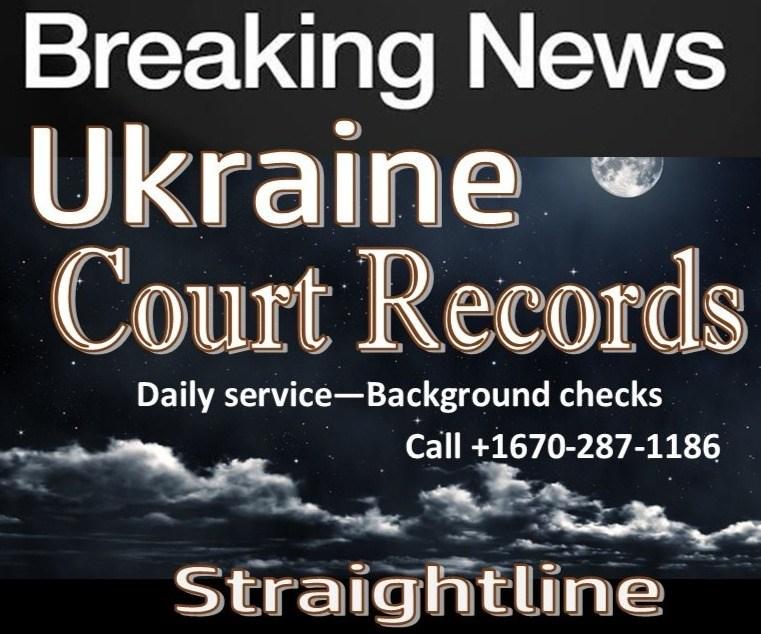

Tokyo’s Lower Courts
Summary Courts in Tokyo, and throughout Japan, are the lowest level in Japan’s judicial system. They handle relatively minor cases, both criminal and civil, with simplified and expedited procedures. There are several Summary Courts in Tokyo, and they have jurisdiction over specific types of cases, including:
1. Criminal Cases
Minor Offenses: Cases such as petty theft, simple assault, and other minor criminal offenses.
Traffic Violations: Most traffic-related violations, including speeding or driving under the influence.
Fines: Summary Courts can impose fines or shortterm imprisonment (up to 3 years) in criminal cases.
2. Civil Cases
Small Claims: Disputes involving small amounts of money, generally up to 1.4 million yen.
Tenant Disputes: Cases involving disputes between tenants and landlords, such as issues with rent or eviction.
3. Administrative Proceedings
They also handle noncontentious matters like administrative fines or objections related to minor legal proceedings.
Structure: The cases are typically heard by a single judge, and the court proceedings are less formal than in higher courts. Appeals from Summary Courts can be made to District Courts.
There are several Summary Courts within Tokyo, each serving a specific geographical area, reflecting the decentralized nature of the judiciary to accommodate the city's size and population

Where Are Tokyo’s Summary Courts?

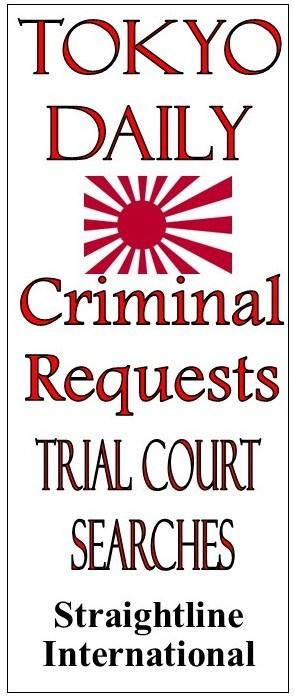
There are several Summary Courts (簡易裁判所, Kani Saibansho) located in Tokyo, each covering different districts within the city. Here are the key Summary Courts in Tokyo and their locations:
1. Tokyo Summary Court (東京簡易裁判所)
Location: 1-1-2 Kasumigaseki, Chiyoda-ku, Tokyo 100-8977
Jurisdiction: Central Tokyo area (Chiyoda, Minato, Chuo, etc.)
This is one of the main and largest Summary Courts in Tokyo.
2. Shibuya Summary Court (渋谷簡易裁判所)
Location: 2-18-20 Shibuya, Shibuya-ku, Tokyo 150-0002
Jurisdiction: Shibuya and surrounding areas.
3. Tachikawa Summary Court (立川簡易裁判所)
Location: 10-4 Akebono-cho, Tachikawa-shi, Tokyo 190-8577
Jurisdiction: Western Tokyo, including areas like Tachikawa, Hachioji, and Tama
4. Katsushika Summary Court (葛飾簡易裁判所)
Location: 3-7-15 Tateishi, Katsushika-ku, Tokyo 124-8537
Jurisdiction: Katsushika and nearby districts.
5. Ueno Summary Court (上野簡易裁判所)
Location: 2-27-3 Higashiueno, Taito-ku, Tokyo 110-0015
Jurisdiction: Ueno and surrounding neighborhoods.
6. Itabashi Summary Court (板橋簡易裁判所)
Location: 2-42-1 Itabashi, Itabashi-ku, Tokyo 173-0004
Jurisdiction: Itabashi and nearby wards.
7. Edogawa Summary Court (江戸川簡易裁判所)
Location: 1-28-15 Higashikasai, Edogawa-ku, Tokyo 134-0084
Jurisdiction: Edogawa area and neighboring wards.
8. Adachi Summary Court (足立簡易裁判所)
Location: 1-7-10 Senjuasahi-cho, Adachi-ku, Tokyo 120-8505
Jurisdiction: Adachi and nearby districts.

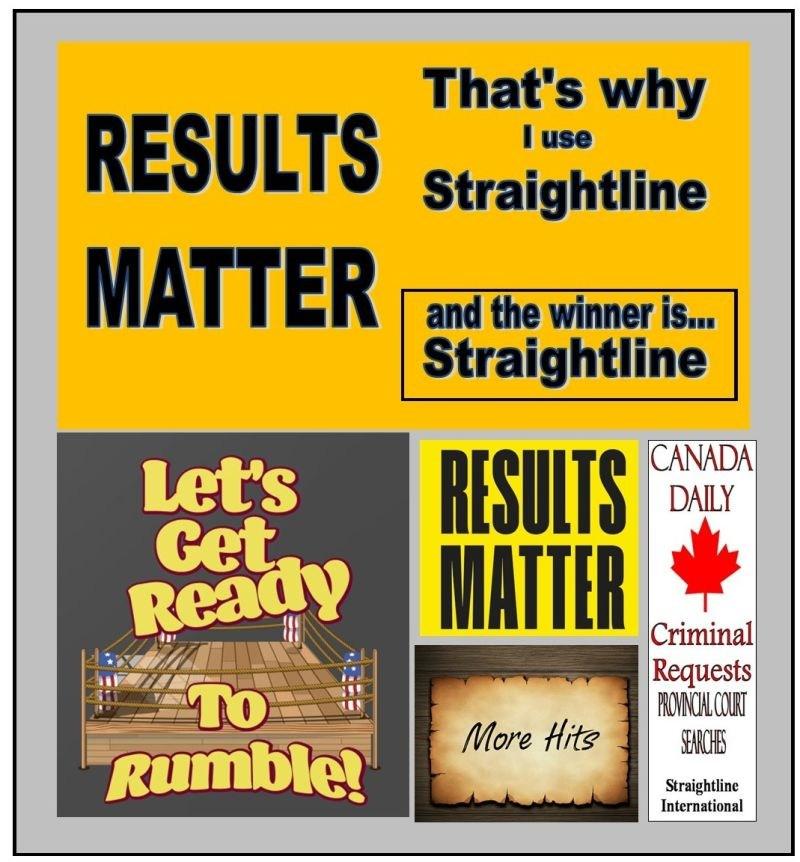
These courts handle minor civil and criminal cases across their respective jurisdictions. If you have a specific case or query, it’s always good to confirm the exact court by checking their jurisdiction boundaries or contacting the court directly.
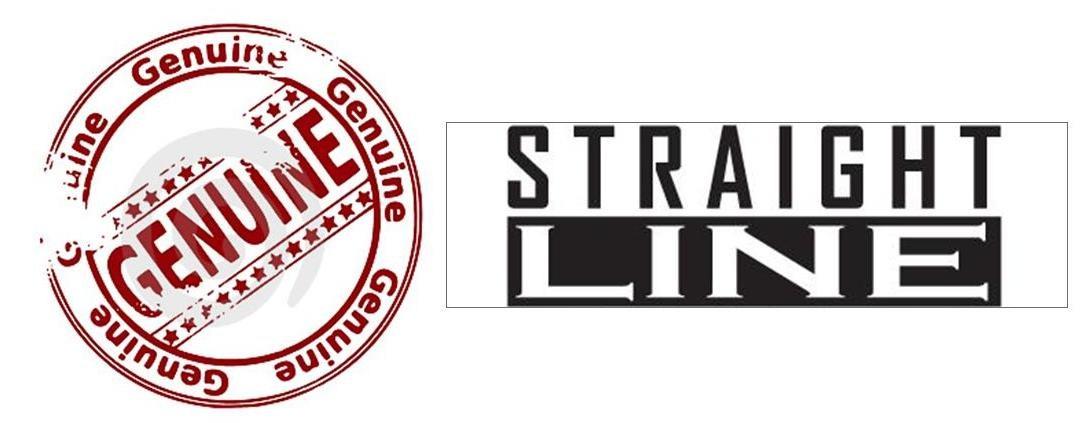

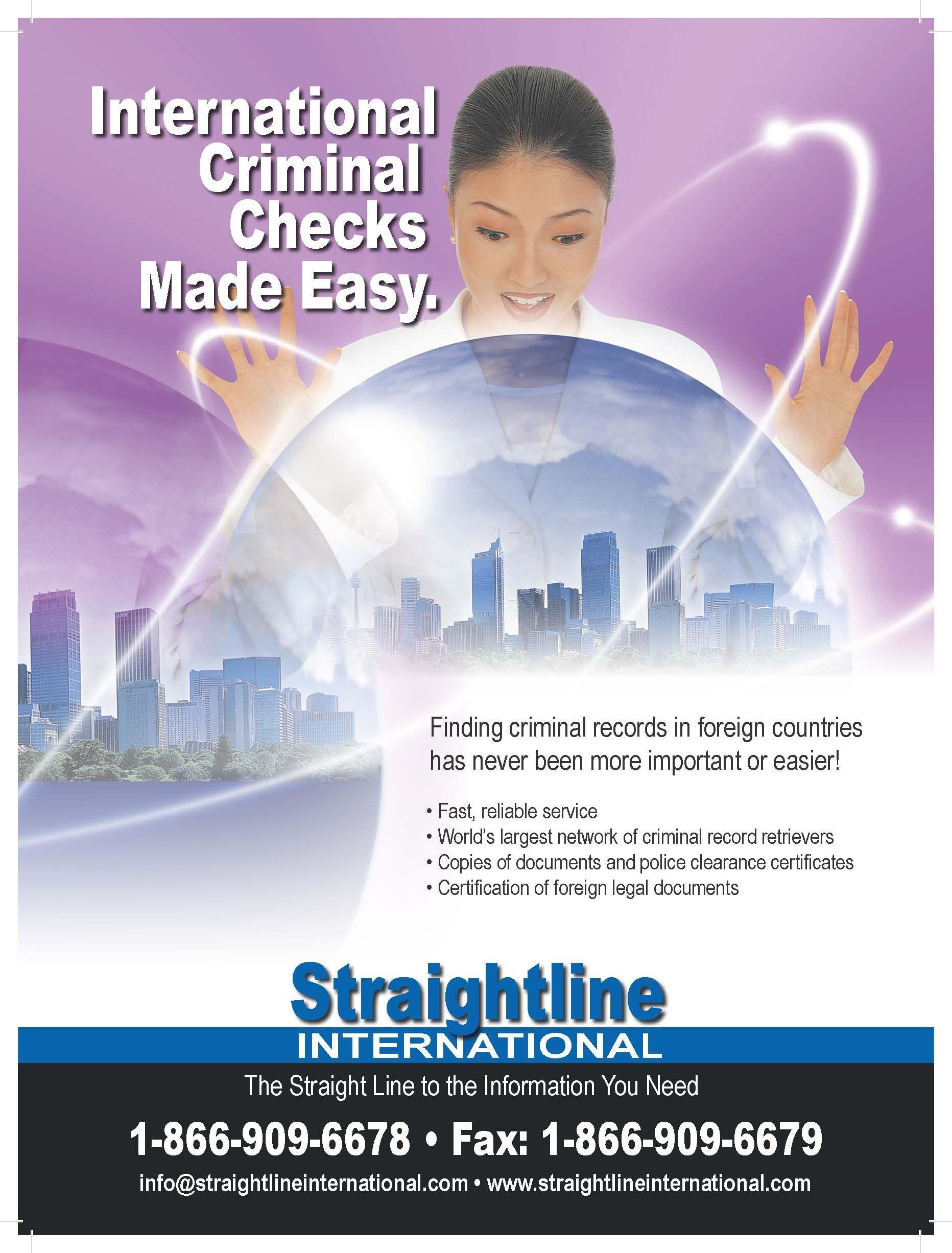
, shosho): Contracts, emails, letters, invoices, receipts, photographs, etc.
Witness Statements 陳述書, chinjutsusho): Written statements by witnesses.
Expert Reports (鑑定 kanteisho): Reports by experts on specific issues.
Court Proceedings
Records: Minutes of Proceedings , chosho): Records of oral arguments and examinations conducted in court.
Transcripts: Verbatim records of court proceedings.
4. Court Orders and Decisions: Summons (呼出状, yobidashijo): Orders for parties or witnesses to appear in court.
Judgments (判決書, hanketsusho): The court's final decision in the case.
Orders for Settlement (和解勧告, wakai kankoku): Recommendations by the court to encourage settlement.
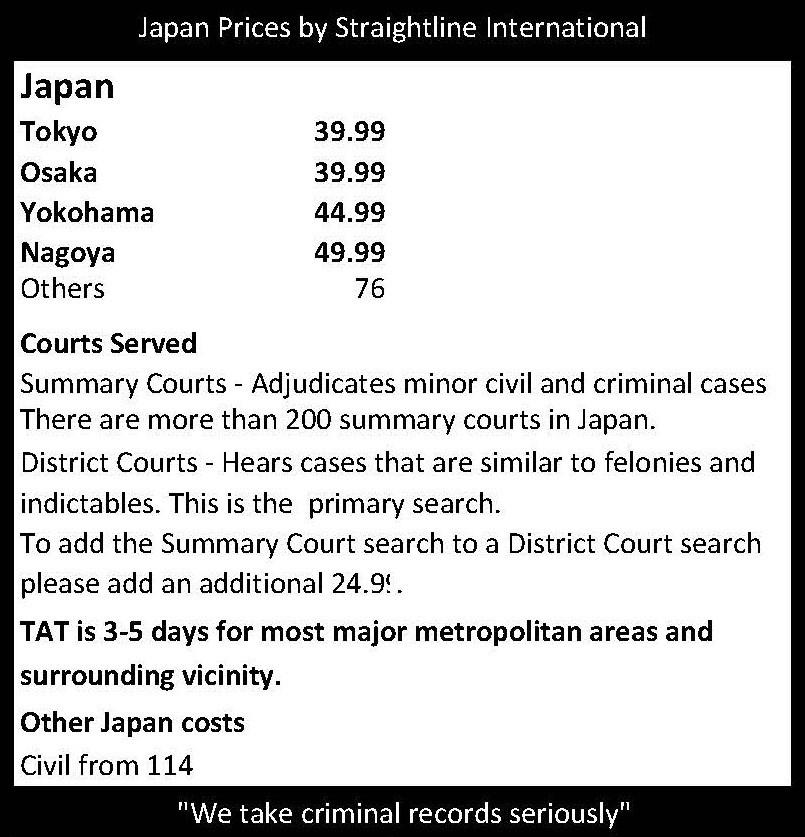
EU Court Rules In Favor Of Transparency Rather Than Privacy
An Italian business owner trying to have links to a past bankruptcy erased from the public record hit a barrier after the European Union’s highest court ruled that his local chamber of commerce can refuse to remove the links under the EU’s personal data laws.

Mauritania Digitizes Criminal Record Access, Launches Online Service
Mauritania launches online criminal record service to simplify administration
• Citizens can access the service via Houwiyeti app and Khidmati portal, available on major app stores • Government aims to improve transparency and efficiency in judicial processes
Mauritanian citizens can now obtain criminal records online, the government announced Friday, March 28, digitizing the process to streamline administrative procedures, expedite processing, and enhance judicial transparency.
The Ministry of Digital Transformation and Administrative Modernization stated that the service is accessible through the Houwiyeti app and the Khidmati portal, both available on the Play Store and App Store. "The Khidmati portal enables citizens to securely access digitized public services and complete procedures online from any smartphone or computer available in the Mauritanian market," the ministry said.
This initiative aligns with the government's goal of bringing public administration closer to citizens through digital transformation. On March 27, the ministry launched a digital platform to facilitate the creation and management of political parties. The previous day, authorities engaged with insurance sector stakeholders to integrate their services into the developing national digital services platform.
To support this digital push, the government launched the "Digital-Y" project in January, a 4 million euro (approximately $4.3 million) initiative in partnership with German cooperation. The project aims to integrate digital tools into public administration to modernize services, bolster transparency, and stimulate economic and social development.
However, the government's ambition faces potential challenges, including a lack of digital literacy and limited internet and device access. The International Telecommunication Union (ITU) estimates that approximately 55.6% of Mauritania's 5 million citizens did not use the internet in 2023.
Thai Government Introduces Changes to Its Website Streamlining the Criminal Record Check Process
The Thai website offers services such as verifying eligibility under the “Erase Records, Clear Crimes, Restore Life” project, targeting individuals acquitted by the courts or not prosecuted by the police or prosecutors.
The Thai government has introduced changes to streamline the criminal record check process, aiming to reduce administrative complexities and enhance public convenience.
Deputy Government Spokesperson Kanika Aunjit announced that, as of August 1st, the Criminal Records Division under the Office of Forensic Science of the Royal Thai Police, has updated the URL for the online criminal record check to www.crd.go.th from the previous www.crd -check.com.
This change aligns with the 2022 Electronic Government Operations Act, and the 1983 Prime Minister’s Office Regulations on Office Correspondence, amended in 2021. The move to a .go.th domain aims to build public trust in the service.
Additionally, the website offers services such as verifying eligibility under the “Erase Records, Clear Crimes, Restore Life” project, targeting individuals acquitted by the courts or not prosecuted by the police or prosecutors.
For fingerprint-based criminal record checks, individuals or companies must bring an official letter for fingerprinting. This service is available at the main office in Bangkok and regional forensic science centers across the country.

Morocco: Justice Ministry Reports on Progress in Digital Services
Morocco's Minister of Justice, Abdellatif Ouahbi (photo), told the House of Representatives, on Monday that since January 2024, 51,000 criminal record extracts have been issued online out of 60,613 requests. Additionally, 6,727 electronic applications for Moroccan nationality certificates have been submitted remotely.
These updates are part of
the initial assessment following the launch of several digital platforms by the Ministry of Justice. During the session, Ouahbi also noted that the state collected 16 million dirhams (approximately $1.6 million) through the electronic payment service for fines issued by fixed radar cameras. The platform for tracking court cases and files recorded 23 million visitors in 2023 and 12 million between January and July 2024.
The digitization of Morocco's judicial sector is advancing under the "Digital Morocco 2030" plan, which aims to leverage digital technologies as a driver of social and economic development. The plan seeks to position Morocco as a leading African nation in the digitization of public services by 2030, with the goal of ranking among the world’s top 50 countries in this field.
Save Yourself the TroubleHow To Search For A Court Record When Only a Single Name is Given
(for instance, the given name is George and the family name is Left Blank)
In most global court's record systems -
Where it is determined that the individual’s name cannot be divided into two parts, the name as it appears on the document will be defined as the primary identifier and will be recorded in the family name field in system of record.
This is consistent with the International Civil Aviation Organization (ICAO)’s guidelines and will facilitate future name searches. For instance, if a client’s travel document displays the name George in the given name field and the family name field is blank, George becomes the primary identifier and will be recorded in the family name field. The given name field will be left blank in
the system of record.
About Germany Criminal Courts - Good Read...
The hierarchy of German criminal courts within the ordinary jurisdiction progresses from the Local Courts to the Regional Courts, then to the Higher Regional Courts, with the Federal Court of Justice at the apex for appeals on points of law.
Local Courts (Amtsgericht)
:
These are the courts of first instance for less serious criminal offenses where the expected sentence is typically less than four years of imprisonment.
Regional Courts (Landgericht
):
These are courts of first instance for more serious criminal offenses, where a sentence exceeding four years of imprisonment is expected, or for specific types of crimes regardless of the expected sentence.
Higher Regional Courts
(Oberlandesgericht):
These are primarily appellate courts for judgments from the Regional Courts

Kaiserslautern, Germany Courthouse
Question -
Is a criminal research professional the one that does the searches and sells it to a wholesaler or is it the wholesaler who buys the court 'runner's info and sells it to the CRA?

Responding When An Applicant Says Their ID Has Been Stolen and the Criminal Record You Found Is Not Theirs
This is a sensitive situation that requires careful handling. Here's a structured approach to respond when a client claims their identity has been stolen and the criminal record found is not theirs:
1. Empathetic and Reassuring Response:
Acknowledge their distress: Begin by expressing empathy and understanding. "I understand this is a very concerning situation, and I want to assure you that we'll do everything we can to help you resolve this." Reassure them that you take their claim seriously: "We take identity theft very seriously, and we'll work diligently to investigate this matter."
Avoid accusatory language: Do not imply that they are lying or mistaken.
2. Gather Detailed Information:
Document everything: Ask detailed questions and record all information accurately.
"Please tell me everything you know about the potential identity theft."
"When did you first become aware of this discrepancy?"
"Do you have any reason to believe someone might have stolen your identity?"
"Can you provide any documentation that proves your identity, and any documentation that shows the criminal record is incorrect?"
Obtain identifying information: Verify their identity using established protocols (e.g., driver's license, social security number, etc.).
Note the specific discrepancies: Carefully document the differences between the
client's information and the information in the criminal record (e.g., name, date of birth, address, specific charges).
3. Explain the Process:
Outline the steps you will take: Clearly explain the process for investigating their claim.
"We will need to verify the information in the criminal record and compare it with your identifying information."
"We may need to contact the relevant law enforcement agencies or courts to obtain further information."
"We will keep you informed of our progress throughout the investigation."
Provide realistic timelines: Give them a realistic estimate of how long the investigation might take. Explain potential outcomes: Describe the possible outcomes of the investigation (e.g., record correction, identity theft report, etc.).
4. Initiate the Investigation:
Verify the source of the criminal record: Ensure the record is from a reputable source.
Contact the relevant authorities: If necessary, contact law enforcement agencies or courts to obtain further information and initiate a record correction process. Gather supporting documentation: Request any relevant documentation from the client, such as:
A copy of their government -issued identification.
A police report for identity theft (if they have filed one).
Any documentation that proves their location during the time the crime was committed.
Document every action: Keep a detailed record of all steps taken during the investigation.
5. Provide Resources and Support:
Offer resources for identity theft victims: Provide information on resources such as:
The Federal Trade Commission (FTC) identity theft website.
Credit reporting agencies. Local law enforcement agencies. Advise them on steps to protect their identity: Offer advice on how to protect themselves from future identity theft.
Maintain regular communication: Keep the client informed of the progress of the investigation and provide updates as needed.
Example Phrases:
"I understand your concern. We will investigate this thoroughly."
"To help us resolve this, could you please provide me with..."
"We will contact the relevant authorities to verify the information."
"Here are some resources that can help you protect yourself from identity theft."
"We will keep you updated on the progress of our investigation."
Key Considerations:
Confidentiality: Maintain strict confidentiality throughout the investigation.
Professionalism: Remain professional and courteous at all times.
Accuracy: Ensure all information is accurate and upto-date.
Compliance: Follow all applicable laws and regulations.
Clear Communication: Communicate clearly and effectively with the client.
The Disclosure and Barring Service (DBS) has launched a new video for organisations, aiming to raise awareness of the online ‘request a Basic DBS check’ service, and the many benefits it provides.
The video explains the benefits of including Basic checks in the recruitment process, as well as the many advantages of using the online Basic DBS check service to facilitate these checks within your organisation.
The short video explains: what Basic checks are, and
what information they show the benefits of using Basic checks in the recruitment process the benefits of using the online Basic check application route You can watch the video below to learn more:
Les Rosen's BehindThe Screens Podcast Series
Les Rosen's "Behind the Screens" is a podcast series that offers an insider's perspective on the background screening industry. Hosted by Rosen an attorney, former screening firm owner, and founding chair of the Professional Background Screening Association (PBSA) the show features in-depth interviews with professionals across the field, including executives, compliance experts, and legal advisors.
Listener Reception
The podcast has been well -received for its engaging and informative content. Listeners appreciate Rosen's interviewing style, which combines humor with insightful questioning.
One reviewer noted, "Les is a fantastic interviewer, able to draw out information from his interview subjects with humor." Another lis-
tener described the show as "a must-listen for anyone interested in the field."
What’s It About
Each platform offers a comprehensive library of episodes, featuring in-depth interviews with industry professionals, legal experts, and thought leaders in the background screening field. Whether you're interested in compliance, technology, or personal career journeys within the industry, you'll find valuable insights across these episodes.
Where Can I Find Them?
You can access and listen to the full list of episodes for Behind the Screens: Conversations with Background Screening Pros, hosted by Les Rosen, through the following platforms
Apple Podcasts https://podcasts.apple.com/ us/podcast/behind-thescreens-conversations-withbackground/id1777735756
Spotify https://open.spotify.com/ show/6cdoC8363EtwgDkH WocCXY
You Tube https://www.youtube.com/ @backgroundscreeningpropodcast
The Background Pros https:// thebackgroundpros.com/

Does ISO 27001 and GDPR Work Together?
By Tom Gell
Co-Founder of ISO Serious®getting startups & scaleups certified
I keep hearing people say they've got ISO 27001, so they're GDPR compliant. No, no, and thrice no. ISO 27001 and GDPR work together, but they're very much their own beasts.
ISO 27001:
-Protects ALL information (financial data, trade secrets, source code)
-Is completely voluntary Focuses on security controls and risk management
-Applies globally
GDPR:
-Specifically focusses on personal data
-Is a legal requirement
-Is narrower in focus, but goes deeper into some of the why and how you process personal data: legal bases, individual rights, privacy by design
-Has specific requirements that ISO doesn't touch
Having ISO 27001 gives you a brilliant start on GDPR compliance, especially for the security bits in Article 32. But it's not the whole story.
You don't need separate systems for both.
I've seen far too many companies waste time and money duplicating documentation, creating parallel governance structures, and running separate training programmes.
Smart companies integrate their approaches:
- Combined policies where it makes sense
- Single governance structure
- Shared risk management processes
- Cross-functional involvement (not just IT and Legal)
Trying to keep these completely separate is like writing two health and safety policies for the same office
- one for tall people, one for short people. Completely unnecessary. The overlap is significant. Use it. Most of all, Don't panic!

Fake Job Seekers Are Using AI to Snatch Up Jobs and Run Workplace Scams
The problem, as usual, is that some people have too much time on their hands and are now conducting AI job fraud by creating convincing fake identities to dupe recruiters. Spotting AI imposters isn’t just essential to maintaining the integrity of the hiring process and finding the right candidates it is also something that recruiters and HR teams have to master to eliminate cybersecurity threats at the organization.
Full article: https:// www.thehrdigest.com/fakejob-seekers-are-using-ai-tosnatch-up-jobs-and-runworkplace-scams/
What’s Up In Background Screeners’ Minds?
As of mid-2025, the background screening industry is undergoing significant transformation, driven by advancements in technology, evolving regulations, and shifting workforce dynamics. Here are the key trends shaping the future of background checks:
1. AI-Powered Screening and Automation
Artificial Intelligence (AI) and Machine Learning (ML) are increasingly integral to background checks, enhancing speed and accuracy. These technologies automate identity verifica-
tion, analyze public records, and detect anomalies, reducing human error and turnaround times. However, concerns about algorithmic bias and data privacy are prompting stricter regulations and the need for transparent, explainable AI systems.
2. Emphasis on Data Privacy and Compliance
With the rise of data breaches and identity fraud, there's a heightened focus on data privacy and compliance. Background screening providers are implementing stronger data protection measures and ensuring adherence to regulations like the Fair Credit Reporting Act (FCRA) and General Data Protection Regulation (GDPR). Employers are also seeking providers that offer clear consent management workflows and encrypted data transmission.
3. Integration with HR Technology and RealTime Updates
Modern background check platforms are integrating seamlessly with Applicant Tracking Systems (ATS) and Human Resource Information Systems (HRIS), enabling real-time data sharing and reducing redundancies. This interoperability enhances hiring efficiency and ensures that background checks are upto-date, reflecting any changes in candidates' records promptly.
4. Rise of CandidateControlled Background Checks
There's a growing trend towards empowering candidates to control their background information. Platforms are emerging that allow individuals to preverify their background data and share it securely with potential employers. This approach promotes transparency, reduces turnaround delays, and fosters trust between applicants and employers.
5. Expansion of Fair Chance and Ban-the-Box Laws
Fair Chance Hiring practices are gaining momentum, with laws expanding to remove conviction history questions from initial job applications. Employers are encouraged to focus on candidates' skills and rehabilitation efforts, conducting individualized assessments rather than blanket exclusions based on criminal records.
6. Continuous Monitoring and Post-Hire Screening
Employers are increasingly adopting continuous monitoring solutions that provide real-time alerts on employees' criminal activities or license status changes. This proactive approach helps organizations mitigate risks and maintain compliance throughout the employee lifecycle.
7. Global Screening and Multilingual Capabilities
As workforces become
more global, background screening providers are expanding their services to cover international checks and offer multilingual support. This ensures that employers can conduct comprehensive screenings regardless of candidates' locations and language preferences.
The trends indicate a shift towards more efficient, transparent, and compliant background screening processes. Employers and screening providers must stay abreast of these developments to ensure effective hiring practices and adherence to evolving legal standards.

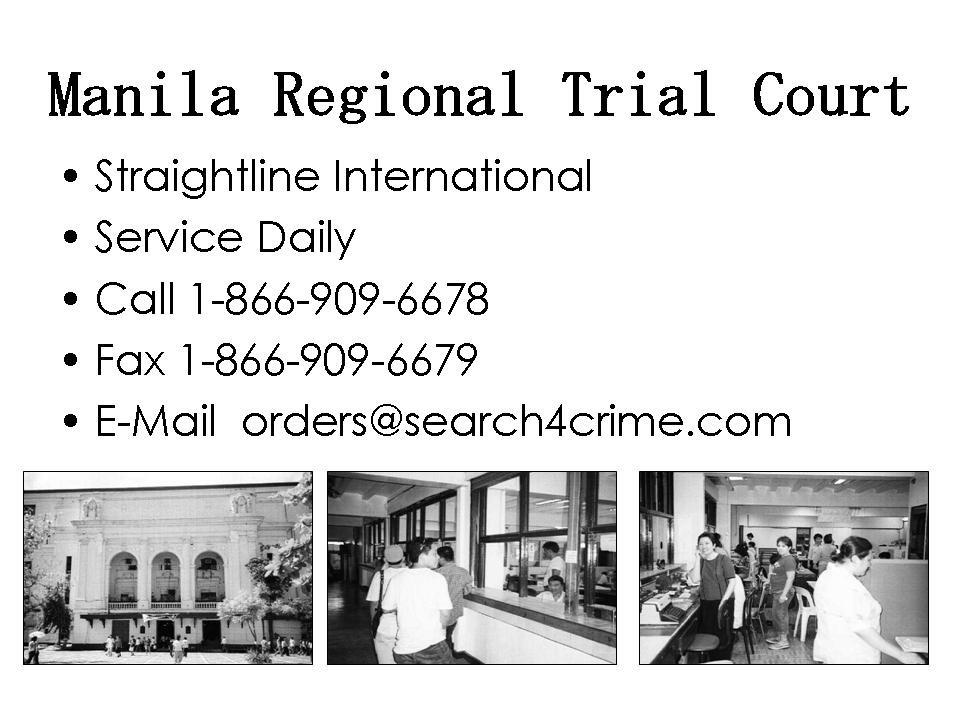


DBS Produces New Video Explaining the Online 'request a Basic DBS check' Service
The Disclosure and Barring Service (DBS) has launched a new video for organisations, aiming to raise awareness of the online ‘request a Basic DBS check’ service, and the many benefits it provides.
The video explains the benefits of including Basic checks in the recruitment process, as well as the many advantages of using the online Basic DBS check service to facilitate these checks within your organisation.
The short video explains: what Basic checks are, and what information they show the benefits of using Basic checks in the recruitment process the benefits of using the online Basic check application route
You can watch the video below to learn more:
https:// youtu.be/0VPdJ1TM_X4

Mexico's Criminal Judiciary Explained in a Nutshell
Similar to the U.S. system, criminal activity in Mexico falls under either federal or state jurisdiction, but the Mexican system classifies criminal activity based on who or what is affected, and where the crime takes place.
Juzgados de Primera Instancia are the courts at the First State Level
State Jurisdiction refers to actions committed between individuals, i.e., those in which the criminal effect falls only on the victim.


Examples include threats, property damage, sexual crimes, fraud and embezzlement, homicide, assault, robbery in all its forms household, business, cars, etc.
These crimes are under the jurisdiction of the state Public Ministry. They are therefore investigated and prosecuted by the state Public Ministry and tried in state courts.
Juzgados de Distrito are the courts at the First Federal Level
Federal Jurisdiction refers to actions that affect the health, economy and overall national security or interests of the Mexican Federation, including its structure, organization, operation and heritage. Examples include such actions as attacking public roads, smuggling, tax fraud, environmental crime, drug trafficking and other drug crimes, illegal possession of firearms, illegal audio and video cassettes, theft of property of the nation (i.e., breaching Pemex oil or gas pipelines), money laundering, human trafficking, electoral fraud, theft or damage to archaeological, artistic and historical heritage sites, etc.
All Mexico’s airports, for example, are under federal jurisdiction; hence, any criminal activity that occurs in any airport is prosecuted in federal court.

Background Screening Trivia
The first pre-employment screening conference was held in Long Beach, California, in April 2002.
This conference was organized by Steven Brownstein, who was the editor of TheBackgroundInvestigator, a newspaper dedicated to the screening industry.
At this Long Beach conference, Brownstein encouraged attendees
to consider forming a national association to promote and protect their burgeoning industry.
This pivotal event in Long Beach laid the groundwork for the establishment of the National Association of Professional Background Screeners (NAPBS) later in November 2002, at a larger national conference in Tampa, Florida, which Brownstein and The Background Investigator also sponsored.
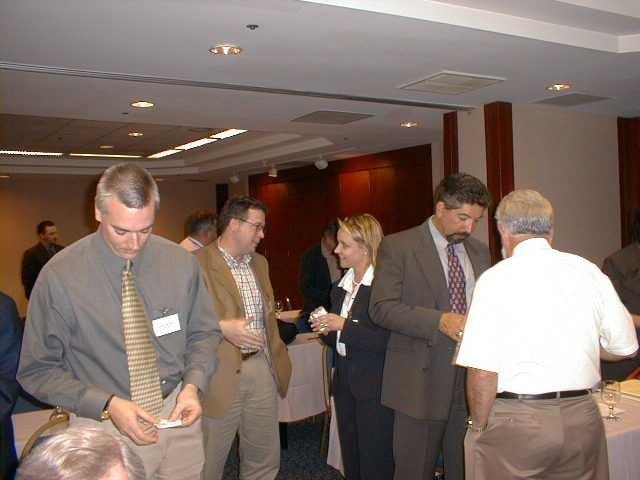
Caveat Emptor Let the Buyer Beware
Several years ago at a PBSA APAC meeting I sat through a vendor's presentation of his company's new online search engine. He said this platform performs a real time search of this one country 's entire District Court records.
WoW. And it's nationwide too!
I just had one question, "Since I have to separately look up each District Court, how did you get access to all the court’s data in real time?"
No, no," he replied. "It's not their system. It's real time access to my system!"

Tick Tock
How time flies. Hard to believe it's been 15 years since I brought this Background Investigator's Preemployment Screeners Conference to the Taj Hotel in Mumbai. The picture is my brother, Dennis Brownstein explaining algorithmic code to measure your efficacy.


Steven Brownstein and
The Background Investigator is the Longest
Running Publication in the Screening Industry
The Background Investigator – the first and longest running publication in the background screening industry – is celebrating its 25th anniversary next year after being founded back in 2001 by publisher Steven Brownstein. The most recent articles are available at www.thebackgroundinvesti gator.com.
The Background Investigator offers stories, national and international news, and archived editions for the screening industry. The monthly publication is an “information resource for background screening” and is “dedicated to preemployment screenings everywhere,” according to its website.
Brownstein began in the screening industry 1986 assisting a friend doing court filings in Chicago more than 30 years ago. He then began to search counties surrounding Chicago and started to build a national network. In 1989, Brownstein started his first company, CrimeSearch which he later sold. He also started offering international criminal record searches. His first international searches were in Puerto Rico and Canada in the early 90s. He recalls at first traveling to San Juan weekly.
In 2001, Brownstein founded a company that he still owns, Straightline International, which offers international background history checks and criminal record searches.
Brownstein originated the idea of holding conferences for background screeners. He sponsored and organized the nation’s first background screening in-
dustry conference in April of 2002 in Long Beach, California. Prior to the Long Beach conference, there were no screening industry events, meetings, or continuing education and very few people in the industry even knew each other. I was invited to give the keynote talk at the inaugural Long Beach conference about compliance with the Fair Credit Reporting Act (FCRA).
Brownstein moved his events to Florida and in November of 2002, Brownstein sponsored a large national conference in Tampa, Florida complete with numerous educational sessions. Thanks to Steven, more than 175 screening professionals attended as well as vendors and suppliers to the screening industry.
Brownstein encouraged the attendees at his conferences to think in terms of a national association in order to promote and protect the screening industry. He had the foresight to see that the industry needed to organize itself. It was at that 2002 Tampa conference that members of the screening industry began to develop a plan to form a professional association.
Phyllis Nadel – who manages advertising for The Background Investigator in the United States – worked closely with Brownstein to coordinate the yearly conferences in Tampa, which continued until 2010, and she has worked with him in the screening industry since 1998, according to Brownstein.
In December of 2007, Brownstein also sponsored the first-of-its-kind international background screening conference that was held in Bangalore, India. Since that time, international background screening has also grown tremendously along with the expanding global economy. I also had he opportunity to be the keynote speaker at that conference and attended along with Barry Nixon.
The Brownstein conferences set the stage and lead
directly to the formation of the Professional Background Screening Association (PBSA), a nonprofit trade group representing the screening industry formerly known as the National Association of Professional Background Screeners (NAPBS). Following the 2002 Tampa conference, an interim steering committee formed to start planning an industry association that lead to the founding of the PBSA in 2003. The first PBSA meeting was in Arizona in 2004. The PBSA currently represents more than 880 member companies engaged in background screening across the United States as well as professional screeners around the world.
The screening industry has progressed immensely since Brownstein's first conferences in 2002, and that is due in a large part to the efforts of Steven Brownstein and Phyllis Nadel holding the first industry conferences and educational sessions along with the first industry trade shows.
Pending Criminal Cases Can Provide Valuable Information
While it might seem counterintuitive to consider pending cases, as they haven't resulted in a conviction, there are several reasons why they can be valuable information in an employment background check:
1. Potential Risk Assessment:
Nature of the charges:
Pending charges, especially those related to violence, theft, or dishonesty, could indicate potential risks for certain roles, especially those involving vulnerable populations, finances, or sensitive information.
Severity of the alleged offense: Even if not convicted, the seriousness of the pending charge can raise concerns about an applicant's judgment and poten-
tial behavior in the workplace.
Relevance to the job: A pending charge directly related to the job's duties (e.g., a DUI for a delivery driver) is more relevant than an unrelated charge.
2. Due Diligence and Liability:
Employer responsibility:
Employers have a duty to create a safe work environment. Ignoring pending charges could be seen as negligence if an incident occurs later related to that charge.
Negligent hiring lawsuits: Employers can be held liable for negligent hiring if they fail to conduct adequate background checks and an employee harms someone on the job.
Reputation and public image: Hiring someone with serious pending charges could damage a company's reputation, especially if those charges become public knowledge.
3. Fairness and Informed Decision-Making:
Balanced assessment: Pending charges should be considered alongside other factors like the applicant's qualifications, experience, and references.
Open communication: Employers should discuss pending charges with the applicant, allowing them to explain the situation and provide context.
Individualized assessment: The nature of the job, the severity of the charge, and the applicant's overall profile should all be considered before making a hiring decision.
Important Considerations:
Legal compliance: Employers must follow relevant laws and regulations regarding the use of criminal history information in hiring decisions, including those related to pending charges.
Accuracy and context: It's crucial to verify the accuracy of pending charge information and consider the context of the case before making any decisions. Potential for bias: Employers should be aware of potential biases and avoid making assumptions based solely on pending charges.
In conclusion: While pending charges should not be the sole determinant in hiring decisions, they can provide valuable information for employers to assess potential risks, fulfill their due diligence, and make informed choices that protect both the company and its employees.
I Received This Crazy Disposition from an Alberta Criminal Case What Does It Mean?
In Alberta, "Cleared of Proceedings" in the context of a criminal case disposition typically means that the legal process or prosecution has been resolved or concluded without further action. This could happen for a variety of reasons, such as:
Withdrawal of Charges:
The Crown prosecutor may decide to withdraw the charges, which means the accused will no longer face prosecution for that offense.
Stay of Proceedings:
The Crown may stay the proceedings, meaning the prosecution is suspended. The charges can be brought back within a year, but in many cases, they are eventually dropped permanently.
Dismissal:
The court may dismiss the case, which means the charges are dropped, and no further legal action will be taken.
Acquittal: If a trial occurs and the accused is found not guilty, the case is cleared of proceedings, as no further action is required after an acquittal.
In essence, "cleared of proceedings" indicates that the court or prosecution has decided to stop pursuing the case, and the accused is no longer subject to criminal charges related to that particular case.
Both the CRA and the Records Retriever Have Compliancy Concerns
When discussing compliance concerns in background checks, it's crucial to understand the roles of Consumer Reporting Agencies (CRAs) and those who retrieve records. Both can face compliance issues, but the nature of those concerns differs. Here's a breakdown:
Consumer Reporting Agencies (CRAs):
Compliance Focus:
CRAs are heavily regulated by the federal Fair Credit Reporting Act (FCRA) and various state-level laws. Their compliance concerns primarily revolve around: Accuracy of information: Ensuring the data they report is correct and up-todate.
Permissible purpose: Only providing reports for legally allowed reasons (e.g., employment, credit).
Adverse action: Following proper procedures when an employer uses a background check to make a negative hiring decision (e.g., providing pre-adverse and adverse action notices).
Data security: Protecting the sensitive information they handle.
Key Regulations:
FCRA: This is the primary federal law governing CRAs.
State-level laws: Many states have their own background check regulations that CRAs must also adhere to.
Records Retrievers:
Compliance Focus:
Those who retrieve records (e.g., court records, employment verification) must also be concerned with compliance, particularly regarding:
Accuracy: Ensuring they retrieve the correct records. Legal access: Adhering to laws governing access to specific types of records.
Data privacy: Protecting the confidentiality of the information they obtain.
Compliance with state and local laws governing access to those records.
Key Concerns:
Varying state and local regulations: Accessing records can be subject to a complex web of laws that vary significantly by jurisdiction.
Data security: Handling sensitive personal information requires robust security measures.
In summary: CRAs have a broader scope of compliance due to the FCRA and related regulations. Their focus is on the overall process of compiling and reporting background check information. Records retrievers focus more on the compliance of the acquiring of the individual records, and the legality of how they are acquired. Therefore, while both have compliance concerns, CRAs operate under a more comprehensive regulatory framework.
What Is The Difference Between Criminal Charges In Massachusetts Superior Court And Criminal Charges In District Court?
Criminal cases in district court begin with an application for a "complaint" that is filed by the police, private individual, or other organization, in the district court clerk's office. In superior court, cases begin with an indictment (a document listing the charges) that has been returned by a grand jury. The grand jury is a group of citizens who hear evidence presented by the prosecutor. If the grand jury decides there is probable cause to believe a crime has been committed, they issue an indictment and the individual is then notified of the indictment and must appear in superior court on the arraignment date, the first court date. This charge
does not mean that the person has committed the crime. Guilt must be determined later by a judge or jury.
Most crimes begin in district court, and the more serious crimes are then brought to the grand jury. If the grand jury issues an indictment, the district court complaint will be dismissed and the case will be handled in superior court. The district court is generally limited to deciding cases for which the maximum authorized penalty for a crime is not more than five years' imprisonment, although there are a few additional crimes set out in the statutes that a district court may also decide. G.L. c. 218, section 26; G.L. c. 274. section 7.
Offenses Within District Court Criminal Jurisdictionin pdf format (www.mass.gov/courts/ docs/forms/district/offenses -in-dist-ct-criminaljurisdiction.pdf) provides a list of crimes that can be resolved in the district court (district court has jurisdiction).
All of the crimes on this list can also be handled in the superior court because superior court can hear all criminal cases. If a crime does not appear on this list, it can only be resolved in superior court (although it the case may begin in district court).
Ukraine's First Instance CourtsWhat Are They?
The local courts are the courts of first instance in Ukraine for both civil and criminal cases. These courts are also referred to as:
District Courts (Районні суди): These are often established within a specific district of a city or a rural district.
City Courts (Міські суди): These operate within the boundaries of a city.
Inter-district Courts (
суди): These
can cover multiple smaller districts.
Investigative Report- Can Identity Checkers Include a Photo of a Drivers License?
The resale of driver's license photos by private identity checkers raises significant ethical and legal concerns. Here's what you need to consider:
Legal Restrictions:
The Drivers Privacy Protection Act (DPPA) is a federal law that restricts the release of personal information from state motor vehicle records. While there are exceptions, these generally do not include the resale of photos by private companies.
State laws also play a crucial role, and these vary. Many states have strict regulations about how driver's license data, including photos, can be used.
Privacy Concerns:
Driver's license photos are sensitive personal information. Reselling them without the individual's consent is a serious invasion of privacy. It could lead to identity theft, harassment, or other forms of misuse.
Ethical Considerations:
Identity verification companies have a responsibility to protect the data they handle.
Reselling sensitive information for profit is a breach of trust and raises questions about the company's integrity.
Potential Scenarios (with caveats):
While outright reselling is generally prohibited, there might be complex situations. For example, a company might use the photos as part of a broader data service, but even this would be subject to legal scrutiny and strict contractual terms.
In summary: The resale of driver's license photos by private identity checkers is heavily restricted due to a combination of federal and state laws, privacy concerns, and ethical considerations
What is the British Term for USA's Misdemeanors?
The USA has "misdemeanors" which are comparable to less serious offences in the English system.
It's important to understand that while the U.S. legal system draws heavily from English common law, the specific terminology has evolved differently. Therefore, a direct, one-toone equivalent can be a bit nuanced.
Here's a breakdown to clarify:
Historical Context:
Historically, the English system did use the term "misdemeanor." However, the Criminal Law Act 1967 abolished the formal distinction between felonies and misdemeanors in England and Wales. Instead, the modern English system primarily uses the classifications of "summary offenses" and "indictable offenses."
Modern English Equivalents:
Therefore, when looking for the closest equivalent to U.S. misdemeanors, "summary offenses" are the most accurate.
Summary Offenses: These are less serious crimes that are typically tried in Magistrates' Courts. They generally involve less severe penalties, such as fines or short periods of imprisonment. This aligns with the general characteristics of U.S. misdemeanors.



